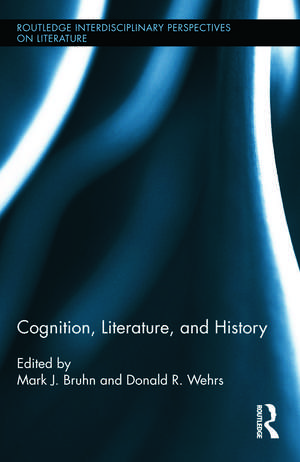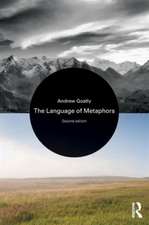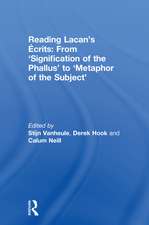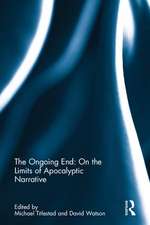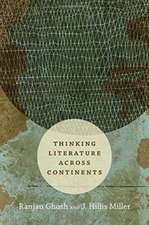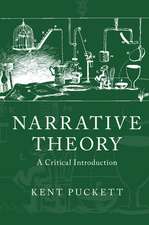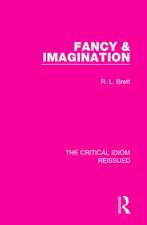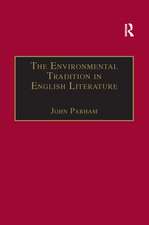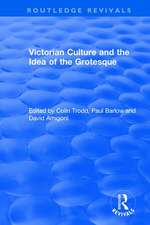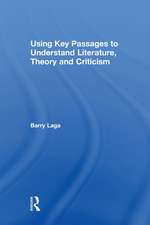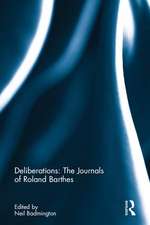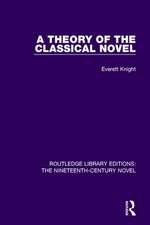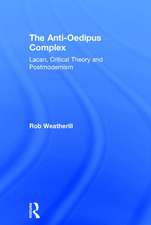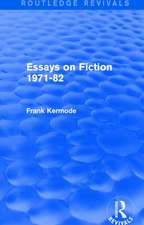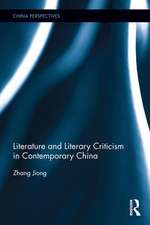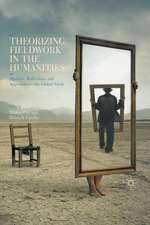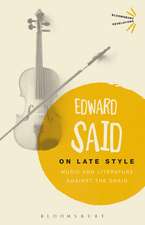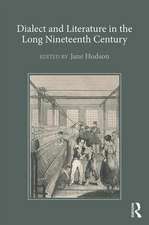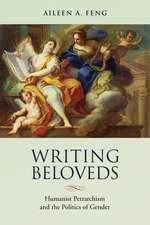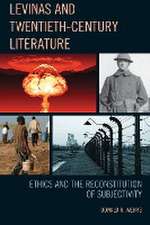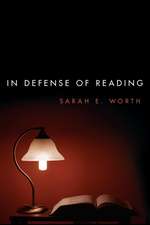Cognition, Literature, and History: Routledge Interdisciplinary Perspectives on Literature
Editat de Mark J. Bruhn, Donald R. Wehrsen Limba Engleză Hardback – 22 noi 2013
| Toate formatele și edițiile | Preț | Express |
|---|---|---|
| Paperback (1) | 436.14 lei 6-8 săpt. | |
| Taylor & Francis – 6 feb 2018 | 436.14 lei 6-8 săpt. | |
| Hardback (1) | 1062.98 lei 6-8 săpt. | |
| Taylor & Francis – 22 noi 2013 | 1062.98 lei 6-8 săpt. |
Din seria Routledge Interdisciplinary Perspectives on Literature
-
 Preț: 339.94 lei
Preț: 339.94 lei -
 Preț: 310.29 lei
Preț: 310.29 lei -
 Preț: 277.97 lei
Preț: 277.97 lei -
 Preț: 311.26 lei
Preț: 311.26 lei -
 Preț: 311.56 lei
Preț: 311.56 lei -
 Preț: 377.87 lei
Preț: 377.87 lei -
 Preț: 310.60 lei
Preț: 310.60 lei - 9%
 Preț: 1007.22 lei
Preț: 1007.22 lei -
 Preț: 371.71 lei
Preț: 371.71 lei - 26%
 Preț: 819.48 lei
Preț: 819.48 lei - 18%
 Preț: 1117.43 lei
Preț: 1117.43 lei -
 Preț: 486.38 lei
Preț: 486.38 lei -
 Preț: 442.68 lei
Preț: 442.68 lei - 18%
 Preț: 1110.74 lei
Preț: 1110.74 lei - 26%
 Preț: 877.19 lei
Preț: 877.19 lei - 18%
 Preț: 700.62 lei
Preț: 700.62 lei - 18%
 Preț: 1063.31 lei
Preț: 1063.31 lei - 18%
 Preț: 707.86 lei
Preț: 707.86 lei - 18%
 Preț: 1117.07 lei
Preț: 1117.07 lei -
 Preț: 488.29 lei
Preț: 488.29 lei - 18%
 Preț: 1057.05 lei
Preț: 1057.05 lei -
 Preț: 383.63 lei
Preț: 383.63 lei - 18%
 Preț: 1109.99 lei
Preț: 1109.99 lei - 18%
 Preț: 1110.74 lei
Preț: 1110.74 lei - 18%
 Preț: 1113.16 lei
Preț: 1113.16 lei - 5%
 Preț: 1223.90 lei
Preț: 1223.90 lei - 18%
 Preț: 1036.35 lei
Preț: 1036.35 lei - 18%
 Preț: 1057.89 lei
Preț: 1057.89 lei -
 Preț: 448.49 lei
Preț: 448.49 lei - 18%
 Preț: 1109.99 lei
Preț: 1109.99 lei - 18%
 Preț: 1052.35 lei
Preț: 1052.35 lei - 18%
 Preț: 1118.82 lei
Preț: 1118.82 lei - 18%
 Preț: 1057.09 lei
Preț: 1057.09 lei - 28%
 Preț: 822.01 lei
Preț: 822.01 lei - 18%
 Preț: 1053.16 lei
Preț: 1053.16 lei - 18%
 Preț: 1112.90 lei
Preț: 1112.90 lei - 18%
 Preț: 1109.99 lei
Preț: 1109.99 lei - 18%
 Preț: 1054.27 lei
Preț: 1054.27 lei - 18%
 Preț: 1112.34 lei
Preț: 1112.34 lei - 5%
 Preț: 1222.85 lei
Preț: 1222.85 lei - 18%
 Preț: 1118.82 lei
Preț: 1118.82 lei - 18%
 Preț: 1112.21 lei
Preț: 1112.21 lei - 18%
 Preț: 1058.38 lei
Preț: 1058.38 lei - 18%
 Preț: 1059.84 lei
Preț: 1059.84 lei
Preț: 1062.98 lei
Preț vechi: 1296.31 lei
-18% Nou
Puncte Express: 1594
Preț estimativ în valută:
203.41€ • 213.08$ • 168.58£
203.41€ • 213.08$ • 168.58£
Carte tipărită la comandă
Livrare economică 08-22 aprilie
Preluare comenzi: 021 569.72.76
Specificații
ISBN-13: 9780415722094
ISBN-10: 0415722098
Pagini: 284
Dimensiuni: 152 x 229 x 20 mm
Greutate: 0.69 kg
Ediția:New.
Editura: Taylor & Francis
Colecția Routledge
Seria Routledge Interdisciplinary Perspectives on Literature
Locul publicării:Oxford, United Kingdom
ISBN-10: 0415722098
Pagini: 284
Dimensiuni: 152 x 229 x 20 mm
Greutate: 0.69 kg
Ediția:New.
Editura: Taylor & Francis
Colecția Routledge
Seria Routledge Interdisciplinary Perspectives on Literature
Locul publicării:Oxford, United Kingdom
Public țintă
Postgraduate and UndergraduateCuprins
Introduction: Integrating the Study of Cognition, Literature, and History Mark J. Bruhn Part I: Kinds of (Literary) Cognition: Cognitive Genre Theory and History 1. Melodies of Mind: Poetic Forms as Cognitive Structures David Duff 2. Toward a Cognitive Sociology of Genres Michael Sinding 3. Novelty, Canonicity, and Competing Simulations in Childe Harold’s Pilgrimage Nancy Easterlin 4. Reassessing the Concept of Ideology Transfer: On Evolved Cognitive Tendencies in the Literary Reception Process Katja Mellmann Part II: The Moral of the Story: Affective Narratology 5. Conceptual Blending, Embodied Well-Being, and the Making of Twelfth-Century Secular Literature Donald R. Wehrs 6. Maternity, Morality, and Metaphor: Galdos’ Dona Perfecta, Lorca’s The House of Bernarda Alba, and Andalusian Culture Thomas Blake 7. National Identity, Narrative Universals, and Guilt: Margaret Atwood’s Surfacing Patrick Colm Hogan Part III: Perceiving Others and Narrating Selves: Theories of Mind and Literature 8. The Phenomenology of Person Perception Joel Krueger 9. The Mind of a Pícaro: Lázaro de Tormes Howard Mancing 10. Fiction as a Cognitive Challenge: Explorations into Alternative Forms of Selfhood and Experience Marina Grishakova Part IV: A Culture of Science and a Science of Culture: Theory and History of Cognitive (Literary) Studies 11. Romantic Reflections: Toward a Cultural History of Introspection in Mind Science Mark J. Bruhn 12. Toward a Science of Criticism: Aesthetic Values, Human Nature, and the Standard of Taste Mark Collier Epilogue: Literary Theory and Cognitive Studies Donald R. Wehrs
Recenzii
"Taken together, the twelve essays in Cognition, Literature and History make a strong case for an integration of an evolutionary view of the human mind and cognition and a historical consideration of the mind’s elaborate products such as literary texts." - Ana Margarida Abrantes, Journal of Literary Theory
Descriere
Cognition, Literature, and History models the ways in which cognitive and literary studies may collaborate and thereby mutually advance. It shows how understanding of underlying structures of mind can productively inform literary analysis and historical inquiry, and how formal and historical analysis of distinctive literary works can reciprocally enrich our understanding of those underlying structures. Applying the cognitive neuroscience of categorization, emotion, figurative thinking, narrativity, self-awareness, theory of mind, and wayfinding to the study of literary works and genres from diverse historical periods and cultures, the authors argue that literary experience proceeds from, qualitatively heightens, and selectively informs and even reforms our evolved and embodied capacities for thought and feeling. This volume investigates and locates the complex intersections of cognition, literature, and history in order to advance interdisciplinary discussion and research in poetics, literary history, and cognitive science.
